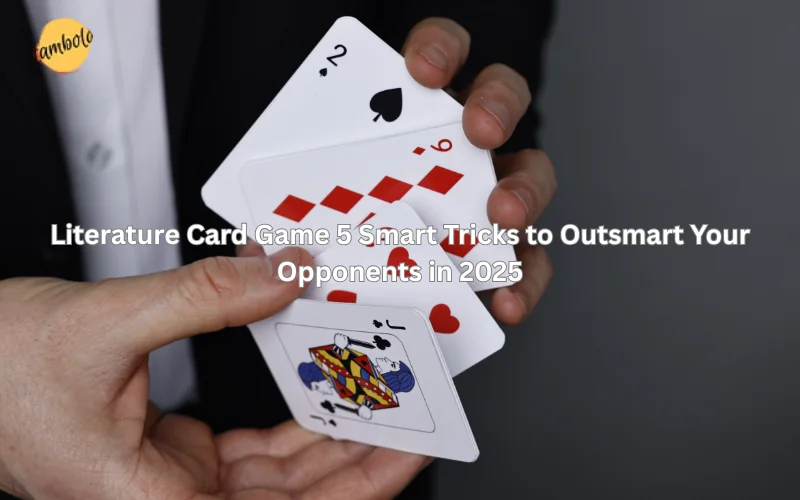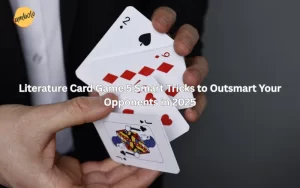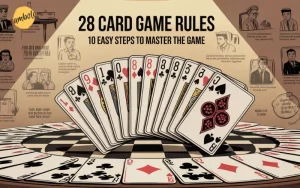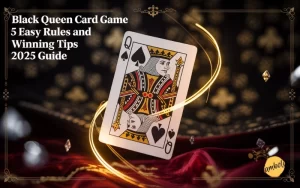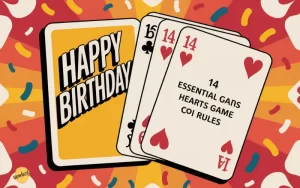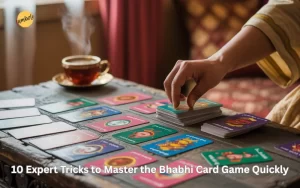The literature card game continues to be one of the most enjoyable and intellectually stimulating card games in 2025. Known for its strategic depth and teamwork, this game is especially popular among students and groups of friends in India and Southeast Asia. Unlike most card games that rely heavily on luck tambola game rules, the literature card game focuses on communication, memory, and observation. Players must use their intelligence and tactics to outsmart their opponents and collect sets efficiently. In this article, we will explore five smart tricks that can help you dominate every round and become a pro at the literature card game.
Understanding the Literature Card Game
The literature card game is usually played with a standard 52-card deck and requires six to eight players divided into two teams. The main objective is to collect complete sets or families of cards by asking for specific cards from the opponents. A set or family usually consists of cards from the same suit that belong to specific groups, such as 2 to 7 of hearts or 8 to King of spades, depending on the version being played.
What makes the literature card game unique is that players must remember which cards have been asked for and by whom. Communication between teammates is indirect, which adds a layer of challenge and excitement. The game demands strong memory skills, logical deduction, and teamwork, making it a perfect mix of fun and strategy.
Trick 1 Master the Art of Observation
One of the most powerful tricks in the literature card game is to sharpen your observation skills. Paying attention to which cards your opponents ask for and how they respond gives you valuable insights into their hands. Every question and answer in the game provides clues about who has which cards.
For example, if a player asks for the 9 of clubs and receives it, you can assume that their team is working on completing that family. On the other hand, if a player denies having a specific card, it might mean that card is in the hands of another teammate or an opponent. Keeping track of these moves can help you predict future requests and plan your strategy accordingly.
Taking mental notes or memorizing patterns can give you a strong advantage. Experienced players often use a mental grid to remember which suits are still in play and who might hold key cards.
Trick 2 Communicate Strategically with Your Teammates
In the literature card game, communication is the heart of teamwork. Since you cannot directly reveal your cards to your partner, you must rely on smart verbal cues and indirect messages. For example, you can ask for cards in a sequence that subtly informs your teammate about your strategy.
Smart communication can mislead opponents while helping your partner understand your intentions. For instance, repeatedly asking for cards from a specific family might signal to your teammate that you are close to completing it. However, you must be careful not to make your cues too obvious, as experienced opponents will pick up on them quickly.
In 2025, many literature card game players practice team coordination through online versions of the game, which helps them refine their signals and develop better understanding without revealing too much to their opponents.
Trick 3 Use Memory to Track Cards and Players
Memory is one of the most crucial skills in the literature card game. Every move, request, and response adds to a web of information that can help you make informed decisions. By keeping track of who has asked for what, you can figure out which cards are likely to be in which player’s hand.
For instance, if Player A asked for 8 of hearts and got it from Player C, you now know that Player C had that card and probably has other hearts as well. Over time, remembering these small details can help you predict which families your opponents are building and how close they are to completing them.
Some advanced players use a mental technique called association, where they connect a card or suit with a player’s face or behavior. This helps them recall information quickly during the game. Practicing your memory through such techniques will make you much more effective in predicting moves and blocking your opponents.
Trick 4 Use Bluffing and Misdirection
Bluffing is a clever and often underestimated strategy in the literature card game. Just like in poker, misleading your opponents can help you gain an upper hand. You can pretend to be interested in one family of cards while secretly working on another.
For example, you might ask for a few cards from the diamond family even if you already have most of the spades. This confuses your opponents, making them think you are focusing on diamonds while your teammate quietly builds the spade set.
Timing is key when it comes to bluffing. If you overuse this tactic, your opponents might notice the pattern. However, when done strategically, bluffing can shift the direction of the game and force your opponents to make mistakes. The best players in 2025 combine logic and deception to keep their opponents guessing throughout the match.
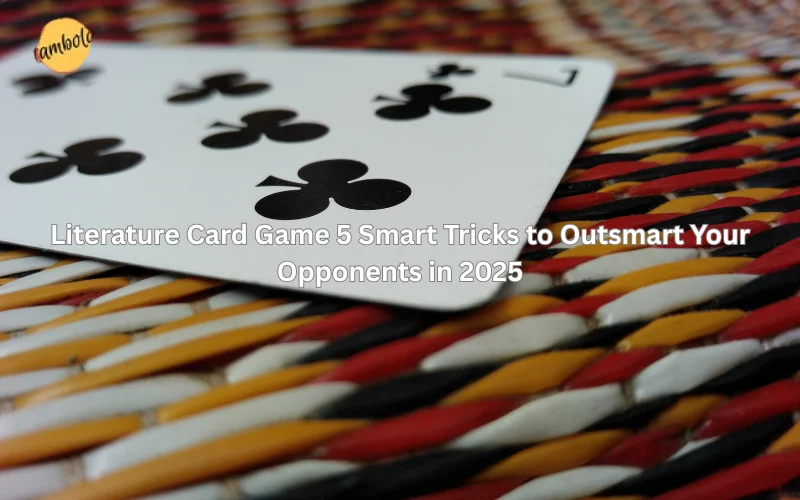
Trick 5 Focus on Team Coordination and Timing
The literature card game is a team-based game, which means coordination is the foundation of success. Winning depends not just on individual skill but also on how well you and your teammate work together. Understanding when to ask for specific cards or when to pass the turn can make a huge difference.
Timing plays an important role in claiming families. If you think your opponents are close to completing a set, you can delay their progress by diverting the flow of the game or targeting their known cards. Similarly, if your team is close to completing a family, time your requests carefully to secure it before your opponents react.
Many skilled players agree that the best way to develop coordination is through practice. Playing regularly with the same partner helps you build trust and understanding, which improves your ability to read each other’s strategies without needing direct communication.
The Growing Popularity of the Literature Card Game in 2025
In 2025, the literature card game has gained renewed popularity, both offline and online. With the rise of mobile gaming platforms and social media challenges, more players are discovering this classic game. Many digital apps now offer real-time multiplayer options, allowing players from different parts of the world to join teams and compete.
The modern version of the literature card game also includes advanced tracking systems and fair play features, ensuring balanced matches and enjoyable experiences. The game’s blend of intelligence, teamwork, and entertainment continues to attract players of all ages.
Tips to Improve Your Overall Gameplay
To consistently win at the literature card game, you need to combine all five tricks with regular practice and a calm mindset. Here are some additional tips to help you improve:
- Stay calm even when opponents are ahead.
- Focus on accuracy rather than speed.
- Avoid repeating predictable patterns.
- Adapt your strategy based on your opponent’s behavior.
- Practice with different teams to learn various playing styles.
Over time, these habits will strengthen your overall understanding of the game and make you a more confident player.
Conclusion
The literature card game remains one of the most strategic and mentally engaging games in 2025. Its combination of teamwork, observation, memory, and bluffing makes it endlessly entertaining. By mastering the five smart tricks—observation, communication, memory, bluffing, and coordination—you can outsmart your opponents and lead your team to victory.
As more players continue to join online and offline tournaments, the literature card game proves that skill and intelligence always triumph over luck. Whether you play casually with friends or competitively in tournaments, these strategies will give you the edge you need to dominate every match.


